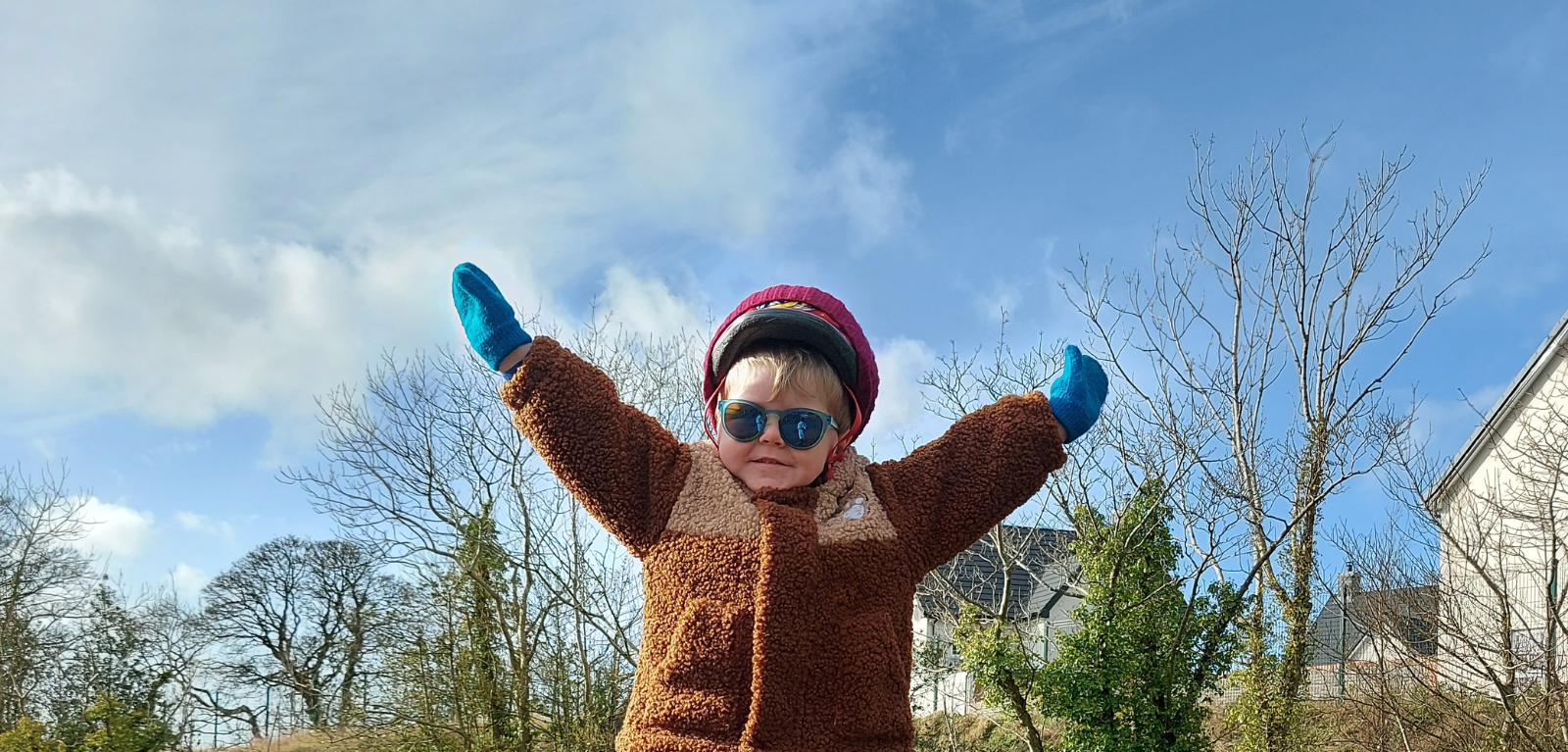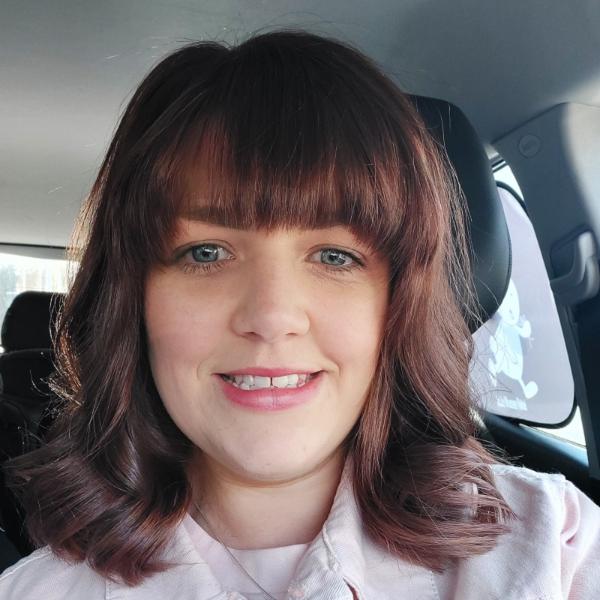BLOG: "My little HD Hero: Living with Hirschsprung's Disease one day at a time"
"Ultimately, HD is trial and error and the mantra we now live by is to take one day at a time."

A blog by Joanna Scott, Placement Allocations Officer in the Placement Team, School of Nursing and Midwifery
My son Charlie is three years old and from birth has lived with a rare bowel condition called Hirschsprung’s Disease. I shorten this to HD and call Charlie my little HD Hero.
HD affects approximately 1 in 5000 babies. It is a genetic mutation which causes an absence of ganglion nerve cells in segments of the bowel. These nerves are essential for the bowel muscles to contract and push stool along the intestine and through the digestive system. Due to a lack of these nerve cells in Charlie’s bowels, his muscles are unable to move stool along and so it moves so far and then stops, causing constipation and partial or total obstruction of the bowels.
At birth we had no indication that Charlie had HD, we had never heard of it and no-one on either side of our family had it. Yet within the first 24 hours, we knew something was wrong. Charlie had yet to pass meconium and was starting to vomit after every feed. He was examined by a Doctor, who advised that something might be wrong with Charlie’s bowel. Within the hour we were being told there was possibly a perforation or twist of the bowel and Charlie was transferred to the Royal Belfast Hospital for Sick Children.
We spent our first few days together on the Barbour Ward under the care of the surgical team while they investigated what was wrong with Charlie’s bowel. He had a rectal biopsy and then daily bowel washouts until the results would conclude what was wrong. Five days after admission the biopsy confirmed that Charlie had HD.
I had a thousand questions at once, but also didn’t know what to say or ask. Adjusting to life at the start was tough; we had to do three washouts daily at set times. This involved inserting a catheter pipe into his bottom, repeatedly pushing small amounts of saline water into his bowel to release the stool and flush it down the catheter pipe onto an incontinence pad. It sounds simple enough but getting a baby to lie still for up to 35minutes while manipulating the pipe, flushing saline and rubbing his tummy to encourage movement was demanding and overwhelming at times.
The overbearing uncertainty of what this lifelong disease meant for Charlie also hung over us. When Charlie was just over three months old, he had a Duhamel pull through operation, removing 15cms of bowel. Naively, I assumed that, following surgery, Charlie would be emptying his bowels himself and that, at times, we might have to help with some mild constipation. Reality soon hit home when, two weeks post op, we were back to bowel washouts
Due to a lot of unknowns about the disease, we have second-guessed everything from the treatments to his diet, gut health, and daily medications. Charlie has trialled suppositories and enemas; taken tablets for reflux, had periods of dairy and sugar omitted from his diet, eats mainly plant based meals and is on a daily osmotic laxative alongside a probiotic sachet containing 430 billion live bacteria.
Over the last three years, although Charlie has sporadically moved stool and gas, we have continued to rely heavily on washouts. Although successful, the washouts did not allow Charlie to feel the sensation of needing to push, and was in theory making Charlie complacent with not having to try and push.
As such we discussed other treatments with the incontinence team and started a new cone washout. This procedure is slightly less invasive, we insert the tip of a silicone cone into his bottom which is connected to an irrigation bag of saline. Gravity then pushes the saline in all at once, the cone is removed and Charlie sits on the toilet for at least 45 minutes. This process causes peristaltic movement of the entire bowel and encourages Charlie to feel the need to push. So far, it has worked great, we have noticed that his tummy does not distend as much with retained gas, and he is passing a lot more gas sporadically. Although we are delighted with this progress, we are still doing the washouts daily.
Ultimately, HD is trial and error and the mantra we now live by is to take one day at a time. We are hopeful for the future and rely on Charlie’s consultant to help us make informed decisions. Once routine hospital procedures can happen again, we hope to have a further rectal biopsy and have discussed treatments such as Botox in the sphincter muscle if Charlie does not start to empty his bowels himself.
When we got our diagnosis, I noticed that there were no support groups for those affected by HD. I was desperate to talk to other parents, who could comprehend and understand the unknowns of HD. So I created HD Heroes Parent Support Group N.Ireland on Facebook. We met in October 2019 and 14 families attended. Everyone felt instantly at ease and shared their HD story and it blew me away that every child’s journey was totally different. It was amazing meeting other parents and I had planned on more meetings but, due to the pandemic, we have had to stay in touch virtually for now.
I know that not all parents have a support group to talk to or provide reassurance, so I have some simple advice;
- Take one day at a time: Sometimes it can be easy to think too far ahead in terms or treatments, their development, transitions to nursery/school, but this can cause more worry, stress and anxiety.
- Seek Support: It is OK to be overwhelmed, talk to others – from your family and friends to other parents.
- Be proud of yourself:Try to stay positive and appreciate what you have done so far in advocating and caring for your child.
I remember being told by Charlie’s consultant that I would become more knowledgeable about his HD than most GPs and medical staff given that it is a rare disease. As such, I always feel anxious talking to doctors and nurses who we haven’t dealt with before as I know I have to start from scratch, explain HD and then the symptoms we’re dealing with. During a couple of hospital admissions, I’ve had the opportunity to speak to medical students and I’ve used it to give them a crash course education about HD. My hope being that if they encounter another HD parent in the future, they might be able to reassure them they have heard about HD, which will provide some sense of relief.
This post is just a glimpse into Charlie's story with HD but I am always happy to discuss HD further with anyone including staff, students and researchers.
Follow Joanna on:
